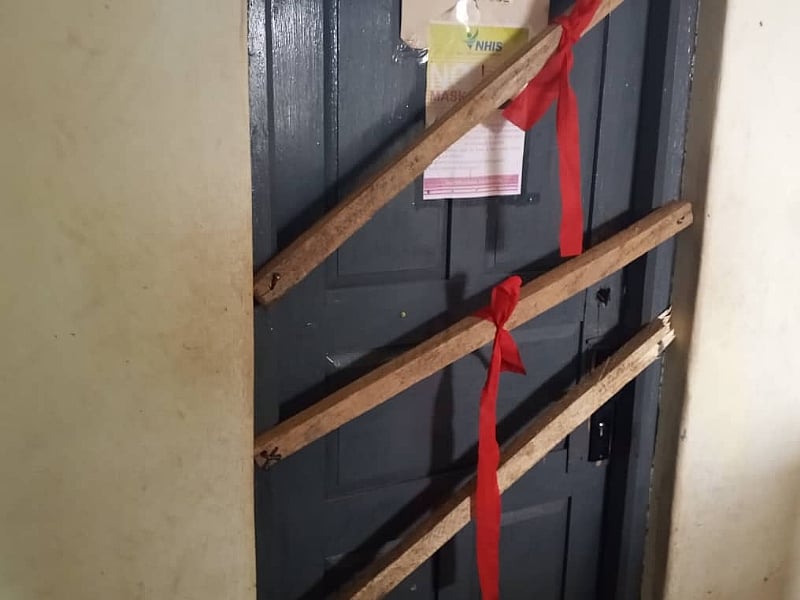The Kadjebi District Office of the National Health Insurance Scheme (NHIS) became the focal point of a protest on Monday, September 15, 2025, as a group of individuals, led by Mr. Sampson Quarshiga, the Youth Organizer of the Akan Constituency of the National Democratic Congress (NDC), barricaded the office of the newly appointed Scheme Manager, Mr. Emmanuel Klu. The protest, commencing at approximately 7:38 am, stemmed from the group’s vehement opposition to Mr. Klu’s appointment, which they deemed inappropriate due to his perceived lack of qualifications. Mr. Quarshiga, speaking to the Ghana News Agency (GNA), articulated the group’s discontent, emphasizing their belief that more suitable candidates within the NDC had been overlooked in favor of Mr. Klu. This act of protest, they contended, was a direct consequence of the party hierarchy’s failure to consult with the local party members before making the appointment, a perceived breach of protocol that fueled their dissatisfaction.
Central to the protesters’ grievance was the assertion that Mr. Klu lacked the necessary qualifications to effectively manage the NHIS scheme within the Kadjebi District. They argued that the position demanded an individual with a proven track record and a deep understanding of the complexities of healthcare administration, qualities they believed Mr. Klu did not possess. Furthermore, the protesters highlighted the presence of more qualified individuals within the NDC’s ranks who, in their view, were more deserving of the appointment. This perceived disregard for internal talent and the lack of transparent consultation within the party structure further exacerbated the situation, leading to the public demonstration of their discontent.
Mr. Klu, in his response to the allegations, countered the protesters’ claims by clarifying the appointment process for the Scheme Manager position. He explained to the GNA that unlike the District Chief Executive (DCE) position, which typically considers factors such as ethnicity, geographical location, and political affiliations, the Scheme Manager appointment does not adhere to such specific criteria. He pointed to similar appointments in Hohoe, Biakoye, and Nkwanta South as precedents, emphasizing the consistency of the process across different districts. This clarification aimed to address the protesters’ concerns regarding the perceived irregularity of his appointment, highlighting the established procedures followed.
Having officially assumed office on Thursday, September 11, 2025, just four days prior to the protest, Mr. Klu also holds the position of Director of Elections for the Akan NDC. This dual role within the party structure adds another layer of complexity to the situation, potentially influencing the dynamics of the protest and the subsequent response from the party leadership. The timing of the protest, so soon after Mr. Klu’s assumption of office, suggests a swift reaction from the dissenting group, indicating the depth of their dissatisfaction and their determination to make their voices heard.
The protest at the Kadjebi District NHIS office underscores the importance of transparent and consultative processes in political appointments, particularly within organizations responsible for essential public services like healthcare. The protesters’ concerns regarding Mr. Klu’s qualifications and the alleged lack of consultation within the party hierarchy raise questions about the decision-making process leading to his appointment. While Mr. Klu has offered his perspective on the established procedures for such appointments, the incident highlights the need for clear communication and engagement with local party members to ensure buy-in and prevent such public displays of dissent.
The situation also brings to light the delicate balance between political considerations and the need for competent leadership in public service. While political affiliations often play a role in appointments, the primary focus should be on selecting individuals with the necessary skills and experience to effectively manage public resources and deliver essential services to the community. The protest in Kadjebi serves as a reminder of the potential consequences of prioritizing political expediency over meritocracy, potentially undermining public trust and hindering the effective functioning of vital institutions like the NHIS.


